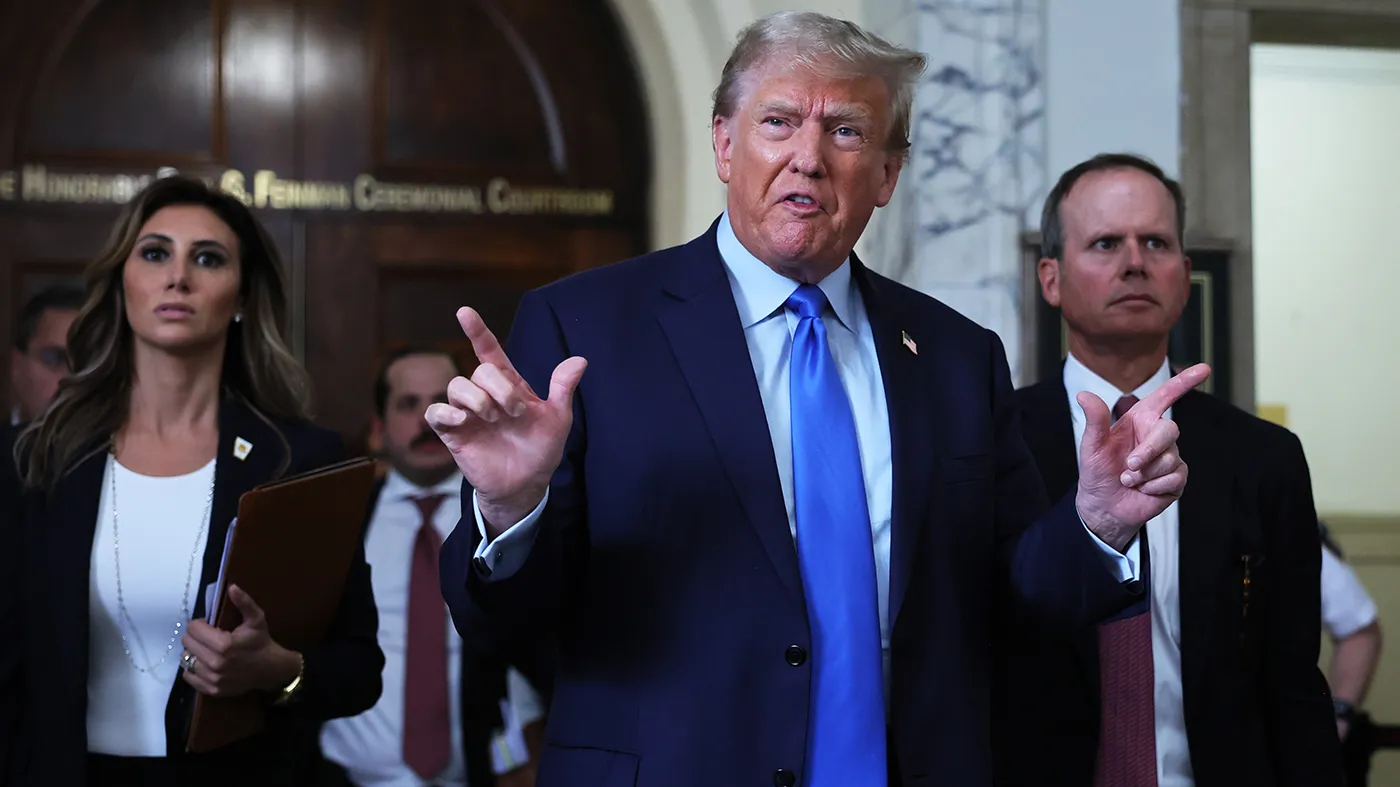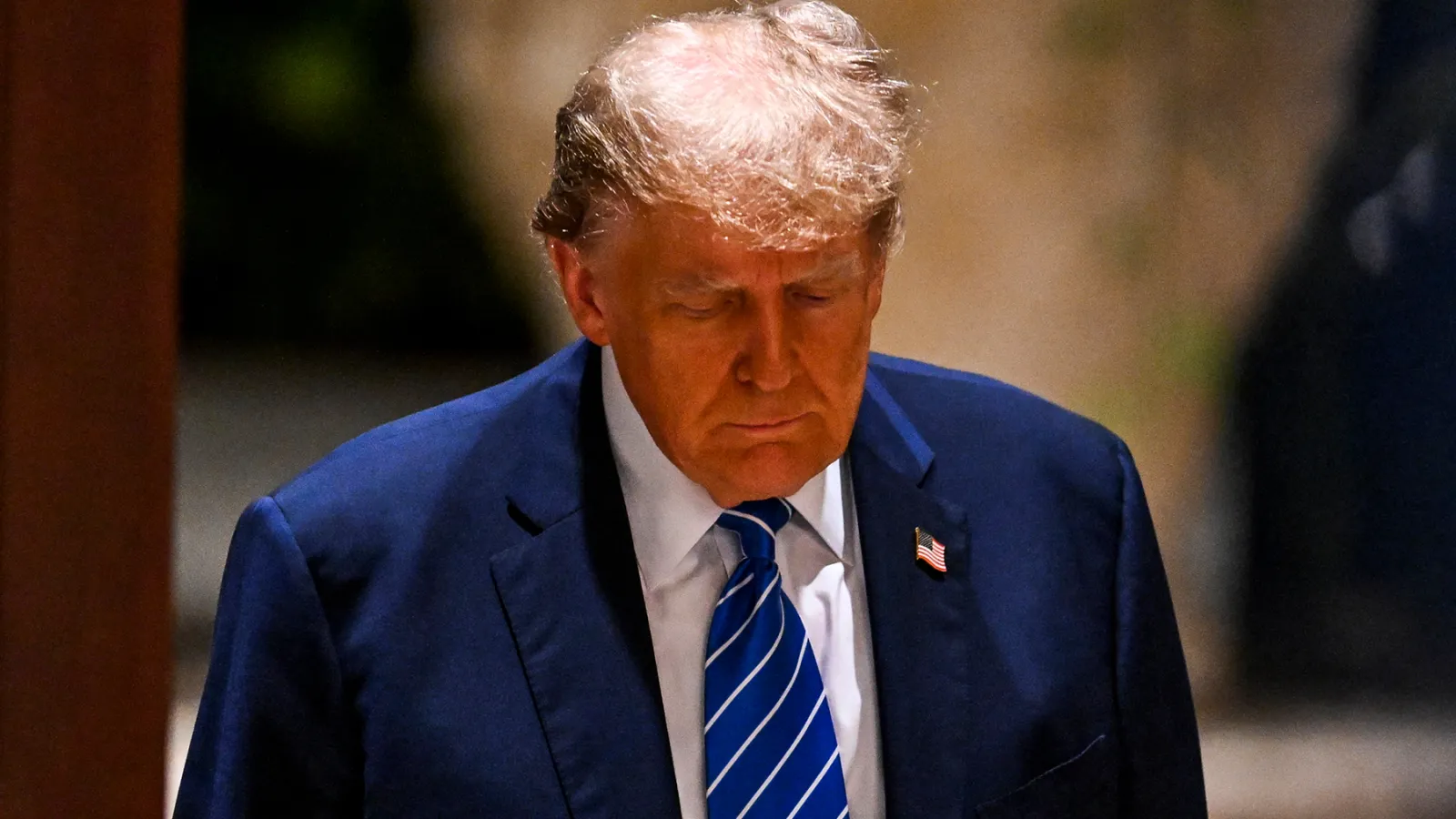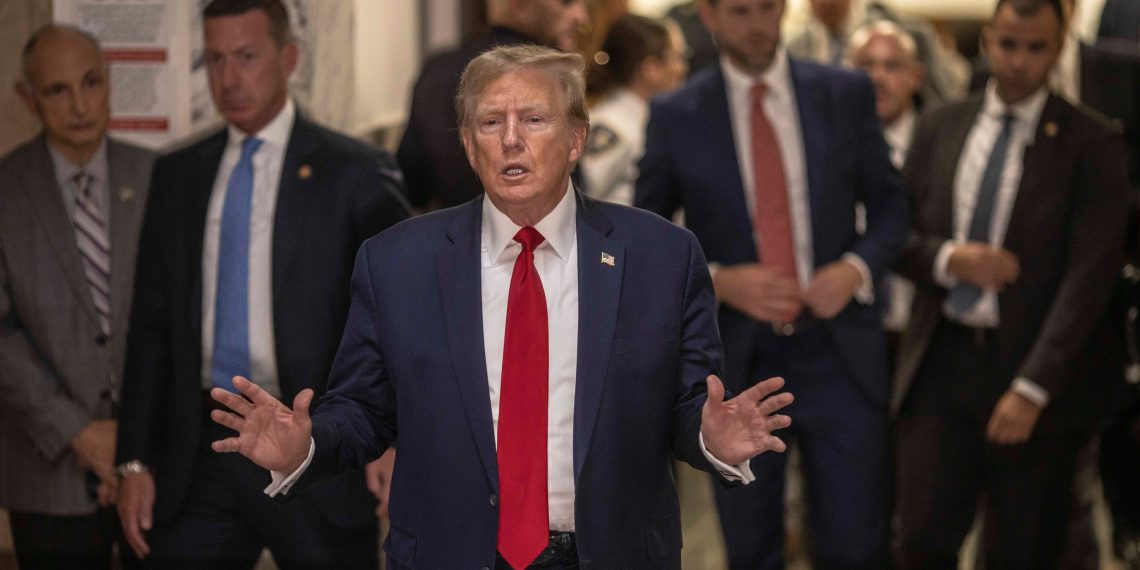Former President Donald Trump agreed on Monday to additional restrictions on the $175 million bond in his New York civil fraud case, addressing concerns raised by the state attorney general about the security of the funds.
The bond, issued by Knight Specialty Insurance, aims to secure Trump’s compliance with a $454.2 million judgment if his appeal fails.
State Attorney General Letitia James had contested the bond, highlighting Trump’s access to the collateral account held at Charles Schwab.

Trump and Knight’s lawyers agreed during a hearing that the funds would remain as cash, under Knight’s exclusive control. They also committed to providing monthly statements to assure the attorney general that the cash remains intact.
This agreement came after Justice Arthur Engoron expressed doubts about the security of the collateral, prompting Trump’s lawyer, Christopher Kise, to address concerns about potential breaches of the agreement.
The bond conditions were a subject of scrutiny, especially as Trump faces simultaneous legal battles.
Trump defended the bond arrangement outside the courtroom of his ongoing criminal trial, asserting that the $175 million cash deposit adequately secured the bond.
However, James had argued that a Trump-owned trust still exerted control over the account, raising doubts about Knight’s financial arrangements to cover the bond.
The involvement of Knight, owned by Trump supporter Don Hankey, added another layer of complexity.

Hankey, with a net worth of $7.4 billion, had initially anticipated a smooth process but acknowledged the unexpected legal challenges.
With the attention shifting to Trump’s criminal trial, Justice Engoron humorously noted the discrepancy in courtroom attendance compared to the civil fraud trial.
Despite the ongoing legal battles, Trump’s legal obligations and the security of the bond remain under close scrutiny, highlighting the complexities of the case.


















